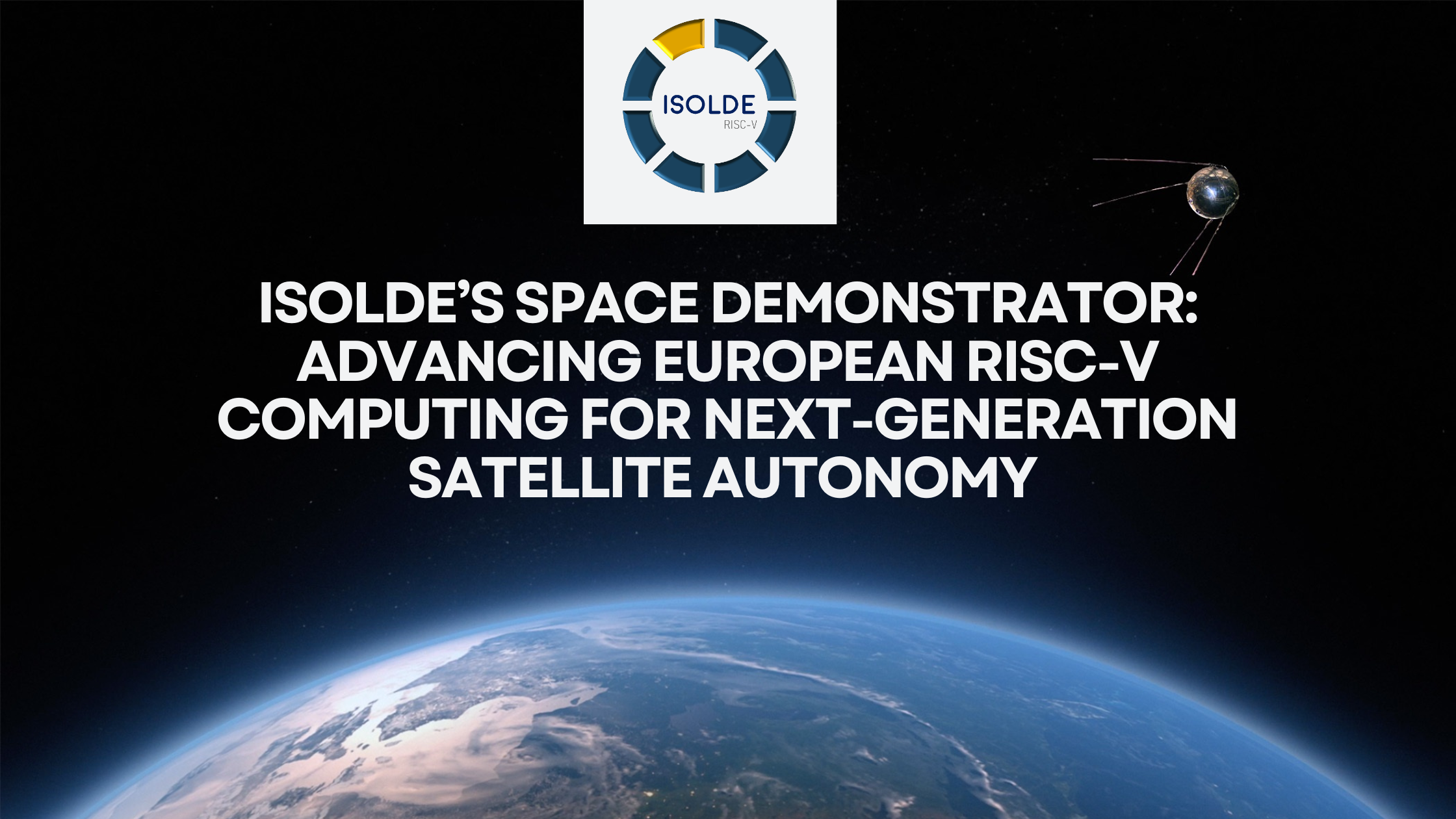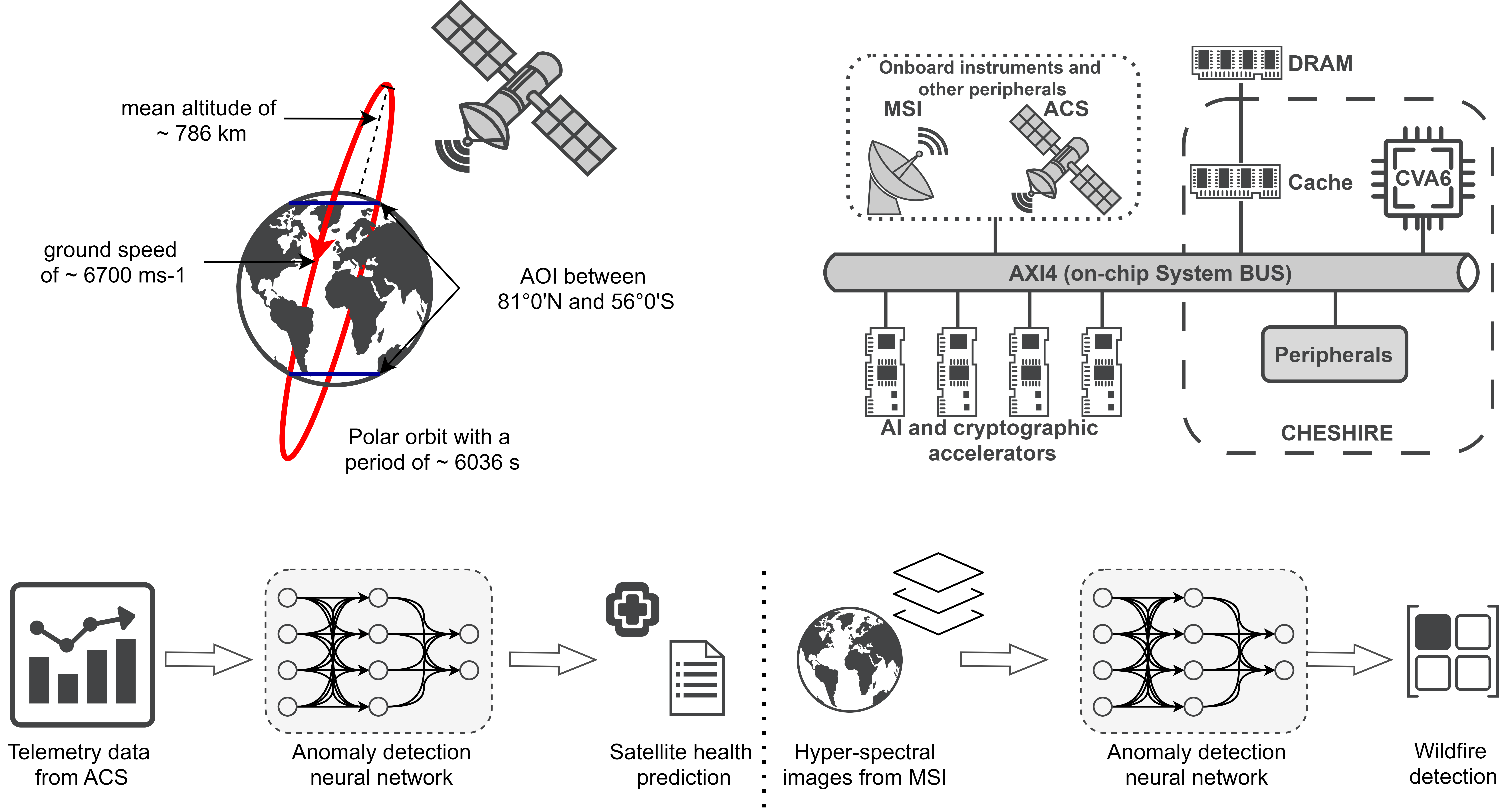
The ISOLDE project, funded by the Key Digital Technologies Joint Undertaking (KDT JU), aims to develop European high-performance RISC-V-based CPUs, achieving functional and non-functional improvements to compete with proprietary alternatives or surpass them. Project partners from leading EU universities and companies will develop advanced architectures, novel accelerators, and reusable IPs, forming a robust compute infrastructure for applications in automotive, industrial, and aerospace domains. The ISOLDE project seeks to establish an European sovereignty in semiconductors, closing the confidence gap, and driving adoption through prototype solutions, documentation, and benchmarks.
Within this project, a demonstrator is developed targeting the space use-case, to showcase the IPs developed in ISOLDE and aiming at revolutionizing onboard computational capabilities for space applications by leveraging RISCV cores and accelerators, integrated with an advanced software layer, to create a hardware and software platform capable of meeting the dual challenges of demanding computing and memory requirements and the harsh environmental constraints of space.
A key innovation of the project is to harness the CVA6 processor family and tensor accelerators, all connected through the open standard BUS protocol AXI4, to enable processing capabilities closer to the sensor and support the development of onboard inference capabilities. Compute intensive applications are offloaded to dedicated accelerators controlled by the Cheshire system host and can communicate directly with the memory through dedicated DMAs, relieving the host from unnecessary CPU cycles. This approach aims to transform traditional workflows, where satellite data, such as Earth observation images, undergo initial preprocessing onboard before being transmitted to ground stations for high performance computing. By bringing these processing steps onboard, the project not only minimizes uplink and downlink requirements, but also accelerates real-time decision-making and enhances satellite autonomy.

The space demonstrator targets a low-Earth orbit satellite use-case, inspired by the Sentinel-2 mission, and encompasses a broad range of applications, such as Earth observation, avionic functionalities and attitude orbit control (AOC), and telemetry processing for fault detection, identification, and recovery (FDIR). Beyond these traditional domains, the ISOLDE space demonstrator focuses on artificial intelligence (AI) models to further enhance spacecraft autonomy. These models will be crucial for applications such as wildfire detection from hyperspectral images captured by the multi-spectral instrument (MSI) and FDIR using telemetry data from the Attitude Control System (ACS). The performance of these AI algorithms will be evaluated on the new hardware, showcasing their potential to redefine the role of onboard computing in space systems.
About Leonardo
Leonardo is a global industrial group that creates multi-domain technological capabilities in the Aerospace, Defence and Security sector. With over 60,000 employees worldwide, the company has a significant industrial presence in Italy, the UK, Poland and the US. It also operates in 150 countries through subsidiaries, joint ventures and investments. A key player in major international strategic programmes, it is a technological and industrial partner of governments, defence administrations, institutions and companies. In 2024, Leonardo recorded consolidated revenues of €17.8bn, new orders for €20.9bn and invested €2.5bn in R&D. Innovation, continuous research, digital industry and sustainability are the pillars of its business worldwide.